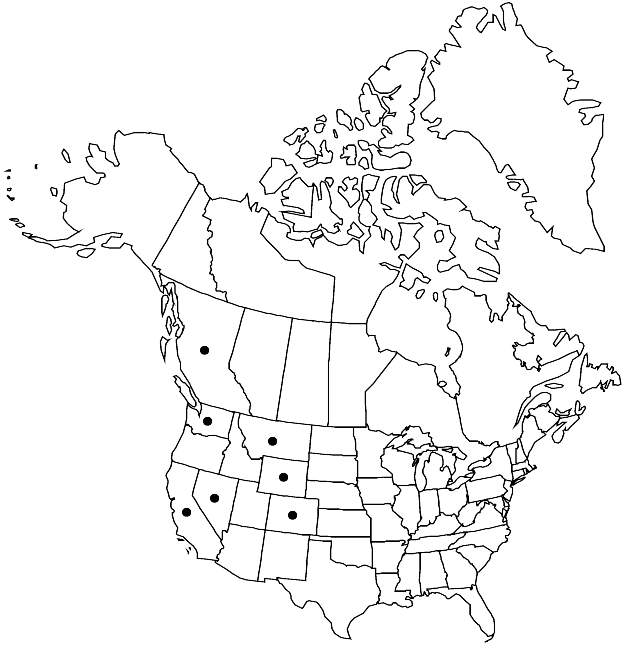Difference between revisions of "Pohlia camptotrachela"
in H. G. A. Engler and K. Prantl, Nat. Pflanzenfam. 218[I,3]: 552. 1903.
FNA>Volume Importer |
FNA>Volume Importer |
||
| Line 26: | Line 26: | ||
|elevation=low to high elevations | |elevation=low to high elevations | ||
|distribution=B.C.;Calif.;Colo.;Mont.;Nev.;Wash.;Wyo.;Europe. | |distribution=B.C.;Calif.;Colo.;Mont.;Nev.;Wash.;Wyo.;Europe. | ||
| − | |discussion=<p>The green to orange-green stems with dull leaves of Pohlia camptotrachela are indistinguishable from those of P. annotina, but the gemmae are small, globose or subglobose, with one to four peglike leaf primordial at the apex; they are, in addition, translucent and may be yellow, green, or orange.</p> | + | |discussion=<p>The green to orange-green stems with dull leaves of <i>Pohlia camptotrachela</i> are indistinguishable from those of <i>P. annotina</i>, but the gemmae are small, globose or subglobose, with one to four peglike leaf primordial at the apex; they are, in addition, translucent and may be yellow, green, or orange.</p> |
|tables= | |tables= | ||
|references= | |references= | ||
| Line 50: | Line 50: | ||
|publication year=1903 | |publication year=1903 | ||
|special status= | |special status= | ||
| − | |source xml=https://jpend@bitbucket.org/aafc-mbb/fna-data-curation.git/src/ | + | |source xml=https://jpend@bitbucket.org/aafc-mbb/fna-data-curation.git/src/8f726806613d60c220dc4493de13607dd3150896/coarse_grained_fna_xml/V28/V28_331.xml |
|genus=Pohlia | |genus=Pohlia | ||
|species=Pohlia camptotrachela | |species=Pohlia camptotrachela | ||
Revision as of 17:04, 18 September 2019
Plants small, green, dull. Stems 0.3–2.5 cm. Leaves ± erect, lanceolate, 0.6–1.1 mm; margins serrulate to serrate in distal 1/3; costa subpercurrent; distal medial laminal cells rhombic to rhomboidal, 60–95 µm, walls thin. Specialized asexual reproduction generally present when sterile; axillary gemmae in dense clusters, spheroid, yellow, green, or orange, leaf primordia 1–4, restricted to apex, peglike. Sexual condition dioicous; perigonial leaves ovate; perichaetial leaves weakly differentiated, narrowly lanceolate. Seta orange-brown. Capsule inclined 95–180°, brown to stramineous, pyriform, neck 1/3 urn length; exothecial cells short-rectangular, walls sinuate; stomata superficial; annulus present; operculum convex-conic; exostome teeth yellow-brown, narrowly triangular-acute; endostome hyaline, basal membrane 1/2 exostome length, segments distinctly keeled, broadly perforate, cilia short to rudimentary. Spores 16–21 µm, finely roughened.
Phenology: Capsules mature summer (Jun–Aug).
Habitat: Acid, gravelly or sandy disturbed soil, path banks, stream banks
Elevation: low to high elevations
Distribution

B.C., Calif., Colo., Mont., Nev., Wash., Wyo., Europe.
Discussion
The green to orange-green stems with dull leaves of Pohlia camptotrachela are indistinguishable from those of P. annotina, but the gemmae are small, globose or subglobose, with one to four peglike leaf primordial at the apex; they are, in addition, translucent and may be yellow, green, or orange.
Selected References
None.